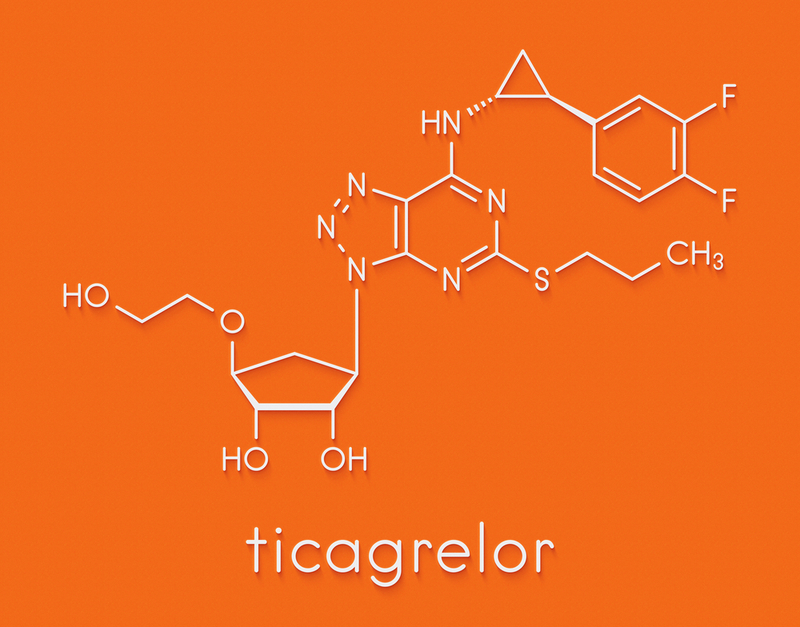Ticagrelor reduces ischaemic events in diabetes patients with prior coronary intervention
ESC 2019 Press Release Sep 05, 2019
Ticagrelor reduces ischaemic events in patients with diabetes and previous percutaneous coronary intervention (PCI), according to late-breaking results from the THEMIS-PCI study presented in a Hot Line Session on 1st September at ESC Congress 2019 together with the World Congress of Cardiology and published in The Lancet.

Senior author Professor Philippe Gabriel Steg of Hospital Bichat, Paris, France said: “Treatment with ticagrelor and aspirin also increased major bleeding relative to aspirin alone, but there was a net clinical benefit with dual antiplatelet therapy.”
Patients with diabetes represent 25–35% of those undergoing PCI, making it a sizeable population. Dual antiplatelet therapy is administered immediately following PCI, but in the long-term, patients are generally treated with a single antiplatelet agent (usually aspirin).
THEMIS-PCI is a prespecified subgroup analysis of the THEMIS trial, also presented at ESC Congress. The THEMIS trial investigated whether adding the antiplatelet drug ticagrelor to low-dose aspirin would reduce the risk of thrombotic events in patients aged 50 or older with type 2 diabetes and stable coronary artery disease (defined as a history of PCI, bypass grafting, or angiographic stenosis of 50% or more in at least one coronary artery). Patients with known prior myocardial infarction or stroke were excluded.
THEMIS enrolled 19,220 patients at 1,315 sites across 42 countries in North America, South America, Asia, Africa, Australia, and Europe. Of those, 11,154 patients (58%) had undergone PCI and were included in the THEMIS-PCI study.
“We hypothesized that the efficacy, safety and net clinical benefit of ticagrelor may be different in the subgroup of patients with a history of PCI, who have previously been exposed to dual antiplatelet therapy with aspirin and a P2Y12 inhibitor such as ticagrelor, prasugrel or clopidogrel,” noted Prof Steg.
Participants were randomly allocated to ticagrelor versus placebo, both on top of aspirin. The primary efficacy outcome was the composite of cardiovascular death, heart attack, or stroke. The primary safety outcome was Thrombolysis in Myocardial Infarction (TIMI) major bleeding. The median follow-up was 39.9 months.
Ticagrelor added to aspirin reduced cardiovascular death, myocardial infarction, and stroke, (the relative reduction was 15% in patients with prior PCI, p = 0.013) although with a doubling of major bleeding (p<0.0001). The net clinical benefit appeared more favorable in patients with previous PCI than in patients without previous PCI, when evaluated as the composite of efficacy events and bleedings (15% relative risk reduction versus 6% relative risk increase, significant interaction, p = 0.012).
Prof Steg said: “The results suggest that long-term therapy with ticagrelor in addition to aspirin may be considered in patients with diabetes and a history of PCI who have tolerated antiplatelet therapy and have high ischaemic risk and low bleeding risk. This is a novel therapeutic option for a large and easy to identify the patient population.”
This article is a news release from European Society of Cardiology (ESC) 2019 Congress. Read the original here.
-
Exclusive Write-ups & Webinars by KOLs
-
Daily Quiz by specialty
-
Paid Market Research Surveys
-
Case discussions, News & Journals' summaries